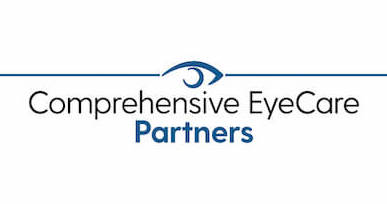
January is recognized as Glaucoma Awareness Month by the American Academy of Ophthalmology. Glaucoma awareness is essential because glaucoma is a leading cause of blindness in adults over 60.
While most people have heard of glaucoma, you may not know just how common it is or how easily it can steal your sight. The eye condition is often called the silent thief of sight because it doesn’t present symptoms in the early stages. But when symptoms appear, it’s in the form of irreversible vision loss.
What can you do to save your vision from glaucoma? Awareness of your risk for glaucoma and regular eye exams are vital in preventing the silent thief from stealing your eyesight. Keep reading to learn more about why Glaucoma Awareness Month is observed!
Glaucoma
What exactly is glaucoma? Glaucoma is the name given to a group of eye conditions that damage the optic nerve. The optic nerve is what connects your eye to your brain.
When it becomes damaged, your eye can’t send full images to your brain. The damage usually starts with your peripheral vision and tunnels inwards as the optic nerve becomes more damaged over time.
How does this damage occur? Glaucoma is usually caused by high intraocular pressure (IOP). The fluid that flows through your eye can build up when the areas it’s supposed to drain through are blocked.
Two ways fluid drains from your eye are through the trabecular meshwork. The trabecular meshwork is the porous tissue that surrounds the eye. The primary drainage angle is the channel between your iris and cornea.
Open-Angle Glaucoma
The most common form of glaucoma is open-angle glaucoma. Open-angle glaucoma occurs when the primary angle is open, but the trabecular meshwork is blocked.
Fluid builds up very slowly over time until the point where the pressure puts too much strain on the optic nerve. This type of glaucoma is impossible to detect in the early stages without a comprehensive eye exam.
Angle-Closure Glaucoma
Angle-closure glaucoma, on the other hand, is rare. It occurs when the iris bulges, cutting off the channel between it and the cornea.
When this happens, it’s usually sudden and causes severe symptoms like nausea, vomiting, eye pain, headache, halos, and blurred vision. If you experience these symptoms, seek immediate medical treatment.
If you undergo surgery quickly enough to re-open the primary angle, you can save your remaining vision.
However, when it comes to open-angle glaucoma, you cannot regain any vision lost. The only way to prevent vision loss is spotting glaucoma early and taking measures to slow the progression of the disease.
Risk Factors
Knowing your risk can help you be more aware of your potential to develop glaucoma. The most significant risk factors include:
- Being over 60
- High blood pressure
- Diabetes
- Family history of glaucoma
- Being of African, Asian, or Latinx descent
If you exhibit several of these factors, you’re at high risk for glaucoma. Talk to your eye doctor about your risk and ensure they have your complete medical records. Having your complete medical records will allow them to recommend the best eye exam schedule.
Prevention and Treatment
You can’t prevent glaucoma, but you can prevent vision loss from glaucoma by scheduling regular eye exams. Your eye doctor can detect the early signs of glaucoma by measuring your IOP and examining your optic nerve with special imaging equipment.
If spotted early enough, you can take medication to lower your IOP and prevent damage to the optic nerve. You can undergo surgical treatments to reduce your IOP in more advanced or severe cases.
There’s no cure for glaucoma, but it is manageable if diagnosed early. The best thing you can do is be aware of your risk and have regular eye exams so that if you do have glaucoma, you can receive treatment as early as possible.
Do you have concerns about glaucoma? Schedule an appointment at Shepherd Eye Center in Las Vegas, NV, today!


